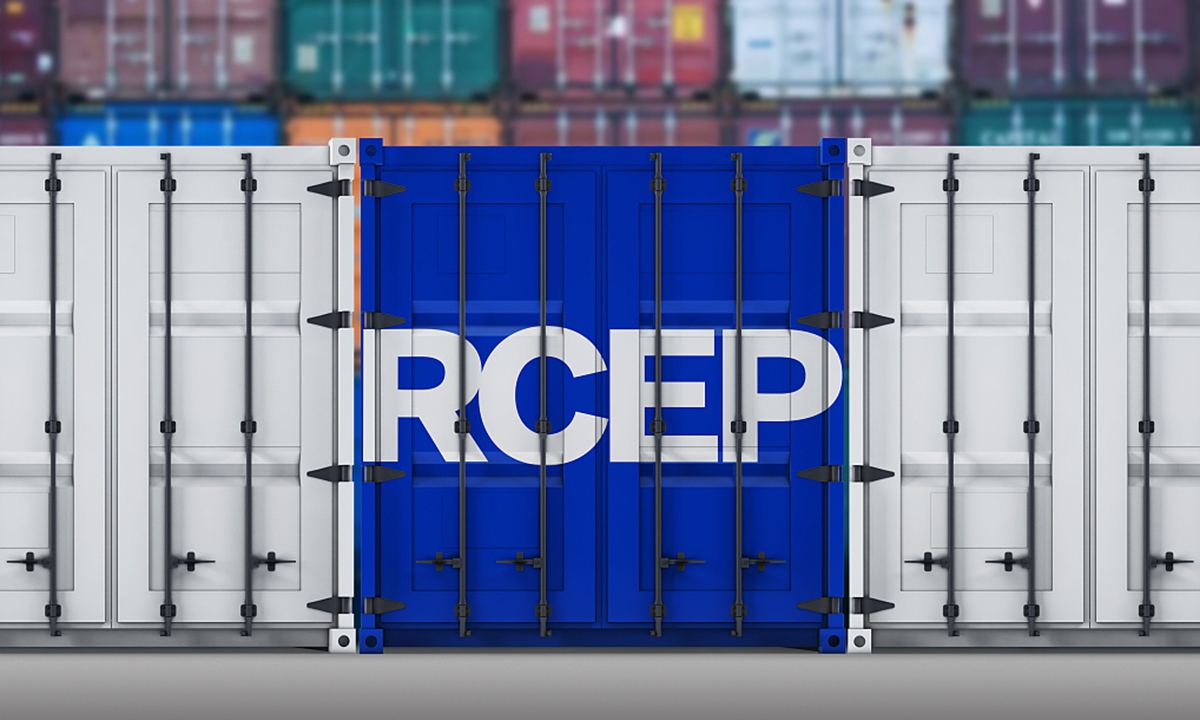
Photo:VCG
Trade between China and the 14 other Regional Comprehensive Economic Partnership (RCEP) member countries amounted to 12.6 trillion yuan ($1.77 trillion) in 2023, an increase of 5.3 percent compared to the period before the agreement came to effect in 2021, China's General Administration of Customs (GAC) said on Friday.
The positive trade growth showcased once again the tangible benefits that the trade agreement has brought for member countries, despite the global inflation and economic downturn that lingered last year. The RCEP saw its second anniversary on January 1.
China's exports to RCEP member countries reached 6.41 trillion yuan, an increase of 1.1 percentage points to 27 percent in terms of the export share compared with that of 2021. Lithium batteries, auto parts, and flat panel display modules all maintained substantial export growth.
Meanwhile, China's imports from RCEP member countries reached 6.19 trillion yuan, taking 34.4 percent of the country's total imports.
From the perspective of enterprise benefits, the actual effects are continuing to be released. The RCEP offers the bilateral free trade agreements that have come into effect between China and other members, creating good conditions for enterprises to gain benefits.
Signed on November 15, 2020, the 15-member RCEP is the world's largest free trade agreement, covering about 30 percent of the world's population and accounting for 30 percent of global trade. The agreement entered into force on January 1, 2022 for China and nine other countries, with the Philippines the last country to ratify the deal.
In 2023, under the RCEP, there were preferential imports amounting to 90.52 billion yuan, with a reduced tax payment of 2.36 billion yuan. The main imported goods included plastics, machinery and parts, and organic chemicals.
Additionally, preferential exports amounted to 270.07 billion yuan, eligible for tariff reduction of 4.05 billion yuan. Key exported goods comprised inorganic chemicals, clothing and accessories.
Nationwide, 723 approved exporters independently issued 12,000 RCEP certificates of origin, totaling 10.18 billion yuan in value.
Lü Daliang, GAC spokesperson, said that over the past two years, the GAC has implemented customs procedures and trade facilitation rules with high standards, strengthened international cooperation in animal and plant quarantine and food safety, and ensured that preferential rules of origin are effective.
In the next step, international exchanges and cooperation with the customs offices of RCEP member countries will be strengthened to create new opportunities for the development of enterprises in the region and to inject new impetus into regional economic cooperation, the spokesperson said.
Global Times




